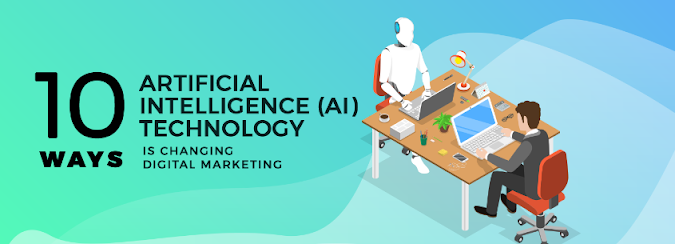10 Ways Technology Is Changing Online Marketing
Technology has brought about significant changes in various aspects of our lives, and online marketing is no exception. With the rapid advancements in technology, online marketers have been presented with new tools and strategies to reach and engage their target audience more effectively. In this article, we will explore 10 ways in which technology is changing the landscape of online marketing.
Data Analytics and Insights
One of the most significant ways technology is transforming online marketing is through data analytics and insights. Marketers now have access to powerful tools that can collect and analyze vast amounts of data, providing valuable insights into consumer behavior, preferences, and trends. This data-driven approach enables marketers to make more informed decisions and tailor their marketing strategies accordingly.
Artificial Intelligence (AI) and Machine Learning
AI and machine learning have revolutionized online marketing by enabling automation and personalization at scale. Marketers can now leverage AI-powered algorithms to automate repetitive tasks, optimize ad targeting, and deliver personalized experiences to individual users. AI also enables chatbots and virtual assistants, which enhance customer service and engagement.
Voice Search Optimization
With the rise of voice assistants like Siri, Alexa, and Google Assistant, voice search optimization has become essential in online marketing. Marketers need to optimize their content to align with the conversational nature of voice search queries. This includes using long-tail keywords, providing concise answers, and optimizing for local search.
Influencer Marketing
Technology has greatly influenced the way influencer marketing operates. Social media platforms and influencer marketing platforms have made it easier for brands to identify and collaborate with relevant influencers. Through technology, marketers can now track the performance of influencer campaigns, measure ROI, and ensure authenticity and transparency.
Augmented Reality (AR) and Virtual Reality (VR)
AR and VR technologies have opened up new opportunities for immersive and interactive marketing experiences. Marketers can use AR to allow customers to visualize products in their real-world environment, while VR can create virtual experiences that simulate real-life scenarios. These technologies enhance engagement and provide unique brand experiences.
Enhanced Targeting and Personalization
Technology has made it possible for marketers to target their audience with greater precision and personalize their messages. Advanced targeting options, such as demographic, behavioral, and contextual targeting, enable marketers to reach the right audience at the right time. Personalization tools allow for customized content and recommendations based on user preferences and behavior.
Automation and Marketing Funnels
Automation has streamlined marketing processes and improved efficiency. Marketers can automate repetitive tasks such as email marketing, lead nurturing, and social media posting, allowing them to focus on more strategic initiatives. Technology also enables marketers to build and optimize marketing funnels, guiding customers through the buyer's journey seamlessly.
Mobile Marketing
The widespread use of smartphones has transformed online marketing strategies. Marketers need to ensure their websites and campaigns are optimized for mobile devices, considering factors like responsive design, mobile-friendly content, and mobile app integration. Mobile marketing also includes location-based targeting and mobile advertising.
Social Media Marketing
Social media platforms have become integral to online marketing efforts. Technology has made it easier for marketers to manage and analyze social media campaigns across multiple platforms. Features like advanced analytics, scheduling tools, and social listening enable marketers to understand their audience, track performance, and engage with customers effectively.
Video Marketing
The rise of video content consumption has reshaped online marketing strategies. Technology has made video production more accessible, and platforms like YouTube and TikTok have provided marketers with opportunities to reach a vast audience. Live streaming, 360-degree videos, and interactive videos are examples of how technology has transformed video marketing.
Conclusion
Technology continues to revolutionize online marketing, providing marketers with powerful tools and strategies to engage and connect with their target audience.


Post a Comment for "10 Ways Technology Is Changing Online Marketing"